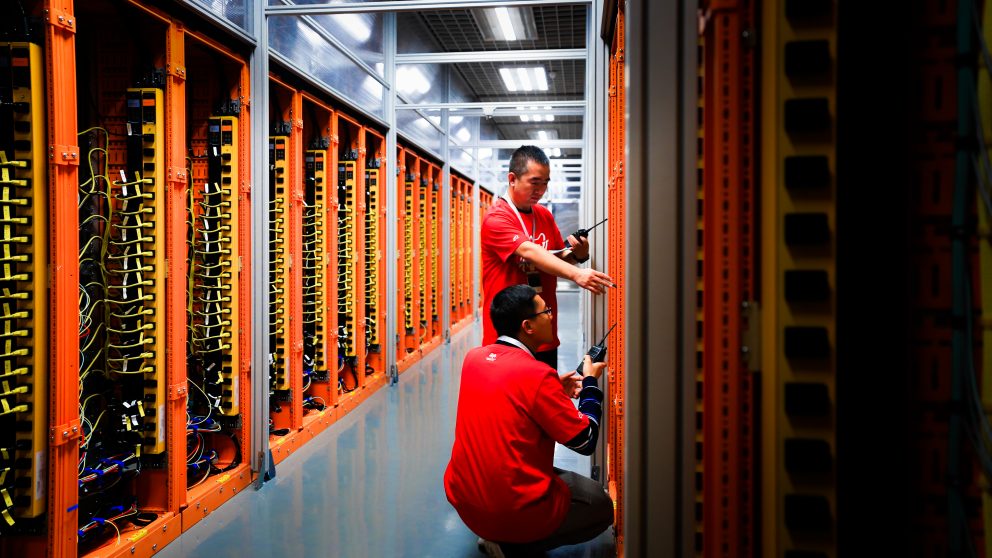
Alibaba Group’s carbon footprint shrank during China’s mid-year shopping festival, part of the internet platform’s efforts to zero in on carbon neutrality.
The company said that the carbon emissions per order during China’s second-largest online shopping bonanza, known as 6.18, fell 18% on a daily basis compared with the event last year.
“We have been working on both the back-end infrastructure and front-end application, with a mission of making the 6.18 sales a low-carbon event and achieving carbon neutrality for our business in the near future,” said Li Cheng, Alibaba’s Chief Technology Officer in a statement announcing the reduction.
Packing Light
The reduction came partly from using less packaging in deliveries. Alibaba also ramped up its use of clean energy – including wind and solar power – at its data centers that house computer systems. Rooftop photovoltaic power stations also played their part in reducing the group’s carbon footprint.
A big fillip to the green push came from upgrading one of its algorithms to make shopping more efficient within its ecosystem, including e-commerce platforms Tmall and Taobao.
Alibaba plans to share its energy-efficient technology with customers and business partners to support the fight against global warming.
China pledged to hit carbon neutrality by 2060, meaning that the country will slash net carbon emissions to zero. The ambitious goal encourages businesses and society to transform the way they consume energy.

Alibaba Cloud’s data center in Zhangbei County in Northwestern China, which plays a major role in supporting Alibaba’s e-commerce business, recorded a reduction of over 8,000 tons of carbon dioxide during the 6.18 sales, thanks to its increased use of wind power. Since 2018, Alibaba has participated in a wind-power trading program in Zhangbei, which encourages businesses to enter into electricity trading contracts with wind power enterprises.
Electricity generated from wind energy that was purchased through the program by Alibaba, reached 450 million kilowatt-hours as of May. This resulted in a reduction of nearly 400,000 tons of carbon dioxide. Alibaba Cloud’s other data center in Inner Mongolia also increased its use of wind and photovoltaic power to 45% of its energy mix as of May this year, jumping from 38% last year.
Cainiao Network, Alibaba’s logistics arm, also revealed that through its energy-efficient distribution center, smart-packaging algorithm and rooftop photovoltaic power station, the carbon emissions from its value chain during the 6.18 festival dropped by over 13,000 tons.
Ele.me, Alibaba’s local service platform, delivered 20 million food takeaway orders without plastic cutlery during the 6.18 sales. As a result, energy saved by not supplying cutlery added up to about 400 tons of carbon emissions, equating to planting 22,000 Haloxylon trees.
Green Bonds
Alibaba’s efforts during the 6.18 shopping festival are part of a broader greening of its ecosystem.
In February, Alibaba raised US$1 billion by selling a debut sustainability bond with a 2.7% coupon due 2041. Strong demand for the bond among investors raised the price of the broader bond issue.
It plans to put the capital to use by boosting energy efficiency, creating a circular economy, using more renewable energy and green buildings
Ant Group, the operator of mobile payment service Alipay and an affiliate of Alibaba, said in April that it would slash carbon emissions by nearly a third by 2025.
To receive the latest news directly in your inbox, sign up for the weekly Alizila newsletter.




